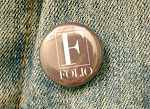
In the age of Poetry Defended, narrative dominates the public sphere. Anyone with a computer can be an internationally acclaimed poet, millions of escapists worldwide stop their days for televised fiction, books take nations by storm, and artists are pop icons. Society has come full circle since the Philosopher banished the Poets from his Republic. The Poet has now become the Philosopher King, leading the world towards the blinding light of ideal forms as distributed by cable networks across the universe, while the position of the Reader, our hero, Philosopher-like in her questioning of forms, is degraded to the former inferiority of the Poet. Because the Reader does more than just watch and because she directs her critical activity at something other than the physical forms of this world, she is taken for a threat to artistic pleasure, by the Poet, and to social productivity, by the Political Activist.
To the Poet, the Reader’s extension of the Poet’s creative world is a rebellious and presumptuous deconstruction, an appropriation of meaning as dangerous to his world as nuclear testing is to ours. The Reader disrupts the peace of simple viewing by insisting on a mistrust of forms. She extends the chain of signifiers beyond the literal reading of text as reality role-playing.
To the Activist, the Reader’s sincere concerns for fiction are trivial as compared to “real life” problems (like nuclear testing), and he hopes any critical discussion will further his causes. While political and social dissent is very real and sometimes fruitful, the interpretive dissent of the Reader is regarded as fruitless by the Activist.
Reading does not engage a representation of reality – neither the Poet’s fictional reality nor the Activist’s global reality – but rather culminates in the presentation of an experience, in which an equal exchange takes place between the Reader and another element, whether it be Text, Author, or community of Readers.
Intentional concerns (’what does the author mean?’) and confusion of text with reality (over-identification with a character, for instance) inhibits a Reader from being critical, from exercising a careful evaluation, a comprehensive understanding of a text that can be made available to her in the experience of reading. Reading is a personal relation with and a reinterpretation of a text and deserves to be practiced by everyone, not solely a limited number of published Literary Critics.
Reading, like Poetry, is a creative art. Just as the artist perceives and reinterprets the world around him, to the delight of others, the Reader perceives and reinterprets a textual world. So why is the Reader necessarily a failed poet, as the Poet was a failed philosopher, conjuring forms twice removed? The Reader is rather a creator in her own right, the missing link between Poet and Philosopher, experiencing and reinterpreting objects in reality, words themselves.


No comments:
Post a Comment